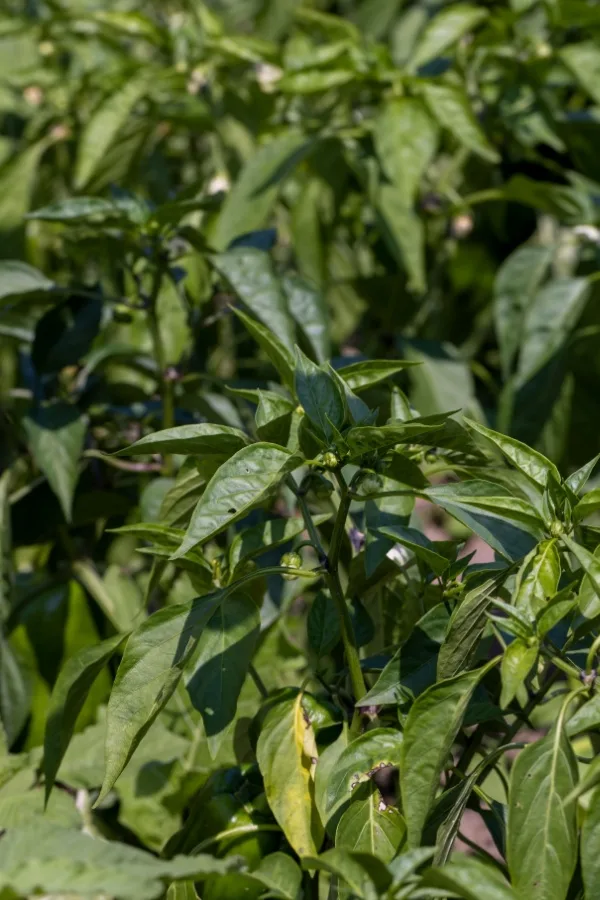Organic Vs. Synthetic Fertilizers: Which Is Best for Nurturing Healthy Pepper Plants?
In the world of supporting healthy pepper plants, the choice in between artificial and natural plant foods stands as a critical decision with far-ranging effects. While both choices aim to provide necessary nutrients to sustain plant development, the nuances of their effect on the soil, plant health, and the setting stimulate an argument that mirrors throughout the gardening neighborhood. Comprehending the distinct benefits and potential challenges of each fertilizer kind is vital for pepper growers looking for to enhance their returns while preserving an eco-conscious and lasting approach.
Advantages of Organic Fertilizers
Organic fertilizers use an environmentally-friendly and sustainable method to beneficial pepper plants, supplying essential nutrients without making use of synthetic chemicals. These all-natural fertilizers are stemmed from organic sources such as garden compost, manure, bone dish, and algae, advertising soil wellness and biodiversity. Unlike synthetic fertilizers, natural options launch nutrients gradually, making sure a well balanced and stable supply for pepper plants to prosper.
One significant benefit of natural plant foods is their ability to enhance dirt structure and water retention. By enhancing dirt wellness, organic fertilizers advertise beneficial microbial activity, which helps in nutrient uptake by pepper plants. In addition, organic fertilizers minimize the threat of chemical run-off, protecting water sources from contamination and guarding the environment.
Additionally, natural plant foods add to long-term soil fertility by promoting the growth of helpful dirt organisms. These microorganisms assist damage down raw material, launching nutrients in a kind that is easily accessible to pepper plants. best fertilizers for peppers. By promoting a healthy soil environment, natural plant foods support lasting pepper growing methods that benefit both plants and the atmosphere
Disadvantages of Artificial Plant Foods
Synthetic fertilizers, in comparison to their organic counterparts, posture different disadvantages when made use of to nourish pepper plants, impacting both plant wellness and environmental sustainability. One significant disadvantage of synthetic plant foods is their tendency to leach nutrients from the dirt promptly.
In addition, the overuse of artificial fertilizers can add to water contamination. Excess plant foods not taken in by plants can remove right into water bodies, bring about eutrophication, where algae flowers deplete oxygen degrees in the water, harming marine life. Artificial fertilizers are normally derived from non-renewable resources, such as fossil gas, contributing to carbon discharges and ecological deterioration throughout their production.
Nutrient Absorption Comparison
When comparing natural and artificial fertilizers in terms of nutrient absorption, organic fertilizers have the benefit of providing a much more well balanced and slow-release resource of nutrients. Organic plant foods have a variety of macro and trace elements that are not just beneficial for the plants however likewise advertise healthy and balanced dirt microbial activity, which helps in nutrient uptake.
Moreover, natural plant foods improve soil structure and water retention capacity, allowing pepper plants to access nutrients more efficiently. This better dirt top read this article quality promotes origin advancement, allowing much better nutrient absorption. Synthetic fertilizers, although initially boosting plant development as a result of their high nutrient focus, may hinder long-term nutrient absorption by derogatory soil health and wellness over time.
Environmental Influence Factors To Consider

On the various other hand, synthetic fertilizers, although usually more focused and immediately offered to plants, can have harmful results on the atmosphere otherwise applied effectively (best fertilizers for peppers). Their production calls for high energy inputs, bring about greenhouse gas discharges and adding to climate adjustment. Additionally, the runoff of excess synthetic plant foods can infect water sources, bring about eutrophication and harming water ecosystems.
Ideal Fertilizer Practices for Peppers
When fertilizing pepper plants, enhancing nutrient uptake and lessening ecological influence are key considerations. To accomplish this, it is important to follow best fertilizer methods customized to the certain demands of pepper plants. One critical practice is to perform a soil test before applying any fertilizers. This test can determine the pH level of the soil and identify any nutrient shortages, guiding you in selecting one of the most ideal plant food solution.
Another vital technique is to feed pepper plants at the ideal time. Usually, peppers gain from receiving plant food at planting and then once again when they start to blossom. Over-fertilizing can bring about vitamins and mineral imbalances and harm the plants, so it is essential to comply with suggested application prices.
In addition, selecting a balanced plant food with an NPK ratio that suits pepper plants' needs is essential. Organic plant foods, such as garden compost or manure, can be outstanding selections as they launch nutrients slowly and boost soil framework gradually. Nevertheless, artificial fertilizers can provide a fast nutrient boost when required. Eventually, combining organic and artificial fertilizers carefully can help support healthy pepper plants while lessening environmental effect.
Conclusion

Organic fertilizers use an environmentally-friendly and sustainable technique to beneficial pepper plants, providing vital nutrients without the use of synthetic chemicals. Unlike artificial plant foods, organic choices launch nutrients gradually, ensuring a well balanced and constant supply for pepper plants to thrive.
Synthetic fertilizers, in contrast to their natural counterparts, pose different negative aspects when used to nourish pepper plants, affecting both plant health and wellness and ecological sustainability. When contrasting natural and artificial plant foods in terms of nutrient absorption, natural plant foods have the benefit of giving a click this site more well balanced and slow-release resource of nutrients.Furthermore, natural plant foods enhance dirt framework and water retention ability, permitting pepper plants to accessibility nutrients extra successfully.